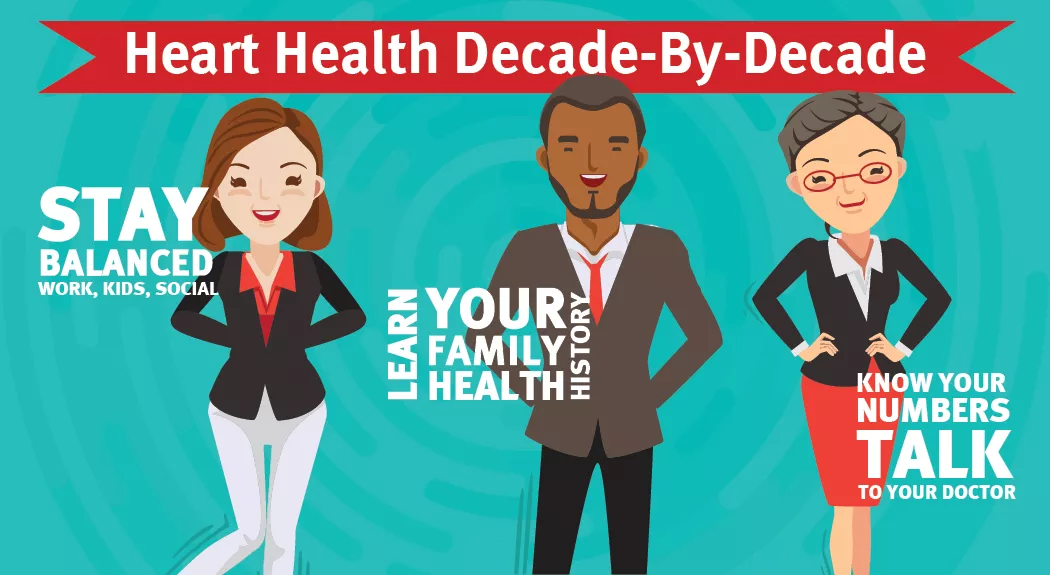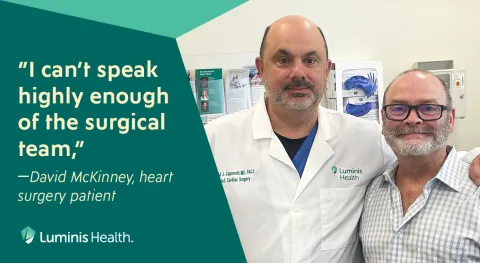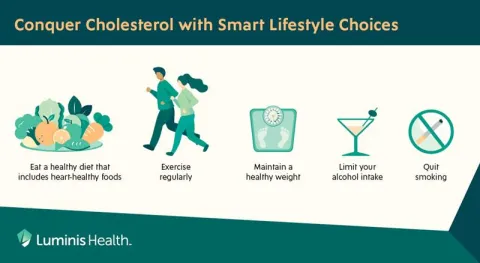Heart disease strikes someone in the United States every 43 seconds, according to the American Heart Association. While we’ve made strides in reducing the death rate from heart disease, it’s still the number one cause of death in the U.S., killing more than 375,000 people a year. The good news is you’re never too old—or too young—to take care of your heart. You can benefit from taking simple steps toward better heart health in every decade of life.
In your 30s
Prevention is key. This is a busy time when people often juggle demanding careers and young families. Make your health a priority with regular cardiovascular exercise and a healthy diet full of fruits and vegetables. It’s never too early to learn about any family history of heart disease. Family history raises your own risk.
In your 40s
Your metabolism slows down, so watch your weight. Exercise and diet are even more important to help you avoid weight gain. Get familiar with your numbers—blood pressure, body mass index (BMI) and cholesterol. Start these screenings early and have them done regularly. Work with your doctor to monitor any changes from year to year.
In your 50s
Aging is one risk factor for heart disease that you can’t control. That’s why it’s important to continue to focus on factors you can control, such as blood pressure, your weight, cholesterol and smoking tobacco. Smoking raises your risk for heart disease and sudden cardiac death. If you need help quitting, you can find classes to help at askAAMC.org/events or call 443-481-5366.
During this decade you might also want to talk to your doctor about a calcium heart scan. This test looks for calcium deposits that can narrow your arteries and increase your heart attack risk. Your calcium score can reveal you have a higher risk of heart disease before other symptoms present themselves.
In your 60s
All the hard work you’ve put into your diet, exercise and knowing your numbers will pay off at this stage of life. If you haven’t been as diligent, talk with your doctor before making drastic changes to your exercise routine. Be sure to get appropriate screenings to learn your heart health risks. As you age, blood pressure, cholesterol and other heart-related numbers tend to rise. Watch your health closely and address any issues that come up.
Originally published Feb. 10, 2016. Last updated Feb. 3, 2020.





